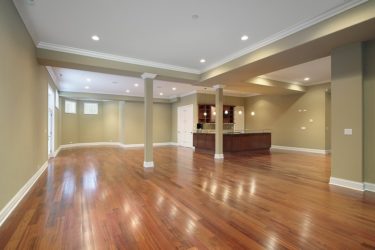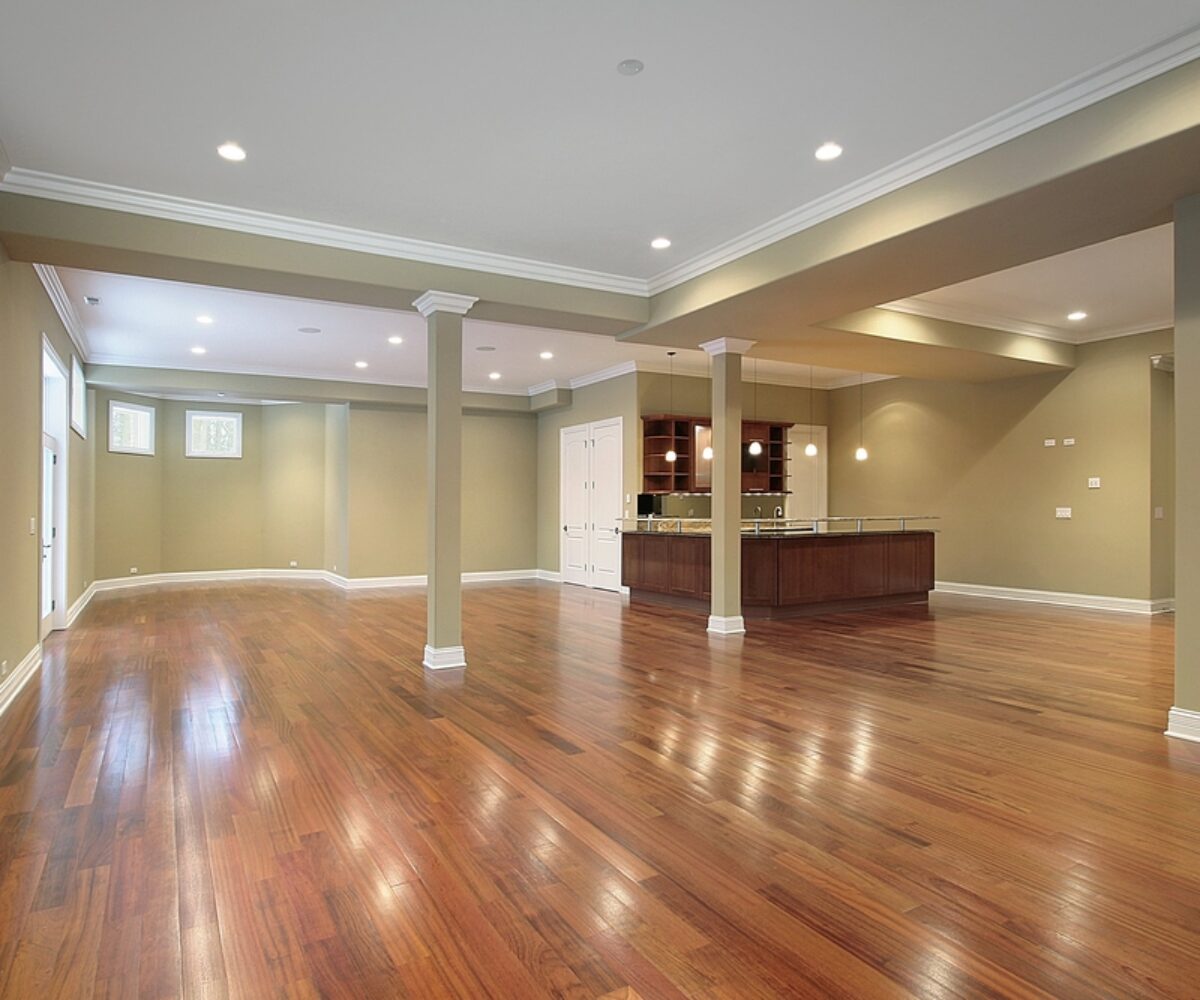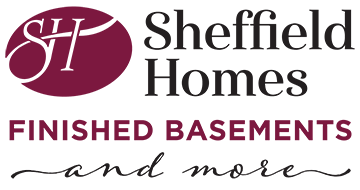What is the Best Flooring to Put on a Concrete Basement Floor?

Fortunately, there are many materials that are excellent options for basement floors. Take a look at some of the best.
Engineered Wood
If your heart is set on wood floors, then engineered wood could be a solution. Unlike solid hardwood, engineered wood flooring has a cross-hatched plywood base below a wood veneer, making it more stable.
Pros: Engineered wood is attractive and also holds up well to mild amounts of moisture. In addition, it has excellent sound absorption qualities.
Cons: It is one of the pricier options for basement floors. It must be nailed or stapled to a subfloor and, because of that, can be difficult to remove in the event of water damage.
Ceramic Tile
Ceramic tile is a finished surface that can be installed directly onto the concrete slab. Radiant heating can be installed between the concrete and the tile, keeping the floor and the room warm.
Pros: If there is a flood, tile dries out quickly with no damage and it will never rot. Laying tile in a small area can be a do-it-yourself project.
Cons: Tile is cold on its own, so radiant heating might be necessary to include. It has poor sound absorption qualities. Before tile can be installed the concrete slab needs to be completely level and free of damage, since there is no subfloor to compensate. A large area can be difficult to install yourself.
Vinyl
Vinyl flooring comes in sheet, tile, or plank form. Sheet vinyl is nearly seamless and impervious to water. Tile flooring has seams that could allow water infiltration if standing water is allowed to remain too long. Vinyl comes in a wide range of colors and patterns and can be a beautiful flooring choice for any decor. Luxury wood-grain or stone-look vinyl planks are thicker and quite durable.
Pros: Vinyl is highly resistant to water damage, is relatively warm to the touch and fairly inexpensive to install.
Cons: Vinyl needs a clean surface for adhesion and sheet vinyl requires professional installation.
Decorative Concrete
Concrete is a versatile option that can be painted or stained for a high-end look that is low-maintenance and economical.
Pros: Concrete is the most moisture-hardy floor. It requires little in the way of materials and no subfloor.
Cons: The hard work comes before it is painted, as concrete must be thoroughly scoured before it can be finished. Concrete is cold, with no options for heating it from below, and has poor sound quality.
Cork Flooring
Cork naturally resists mold, mildew and rot, making it ideal for use in basements. Simply apply an acrylic finish at the time of installation and reapply every 10 years, depending on wear, to protect against scratches.
Pros: Cork is easy to clean, eco-friendly and sustainable, and is a good insulator, making it a great choice for environmentally-conscious homeowners. It is also a soft surface that is easy on feet and joints.
Cons: Because it is softer, cork is susceptible to damage from furniture and sharp objects.
Rubber Flooring
For a less formal finished basement that is intended as a play space, rubber flooring is a smart choice. One option is roll rubber, the type found in gyms, and has the fewest seams. Interlocking rubber tiles fit like puzzle pieces and are easy for homeowners to install.
Pros: This cushioned surface provides a high degree of insulation; is soft for walking, standing and playing on; and holds up to moisture.
Cons: It is not aesthetically pleasing for many living spaces. Water can get into the seams.
Carpet
Carpet my seem like a counter-intuitive choice when there are moisture concerns, but in basements that are consistently dry and with the installation of a good sub-floor, it can be a reasonable option.
Pros: Carpet is the warmest flooring material without radiant heat. It has good sound properties for home theaters. It’s comfortable to sit on and walk on.
Cons: It can be difficult to dry if it does get wet. Carpet can be pricey, especially if you opt for a thicker piles and padding.
Basement floors are notorious for becoming damp. Sadly, moisture will ruin a floor unless necessary precautions are taken. Before you begin adding a floor, make sure you’ve taken care of any moisture concerns. Contact a basement finishing company to help you make the right flooring choice for your basement.

